Sleep is more than just rest — it’s a key part of living well. But if you’re constantly waking up tired, groggy, or feeling like you haven’t slept at all, you’re not alone. A recent survey found that nearly 30% of adults have been diagnosed with a sleep disorder. That’s a huge number, and it reveals how modern life — full of stress, screens, and nonstop schedules — is quietly disrupting our sleep.
While most adults need between 7 to 9 hours of sleep each night, many people get far less. If you’re clocking under 5 hours regularly, it’s time to look at the hidden habits that may be robbing you of rest.
1. Carpets in the Bedroom
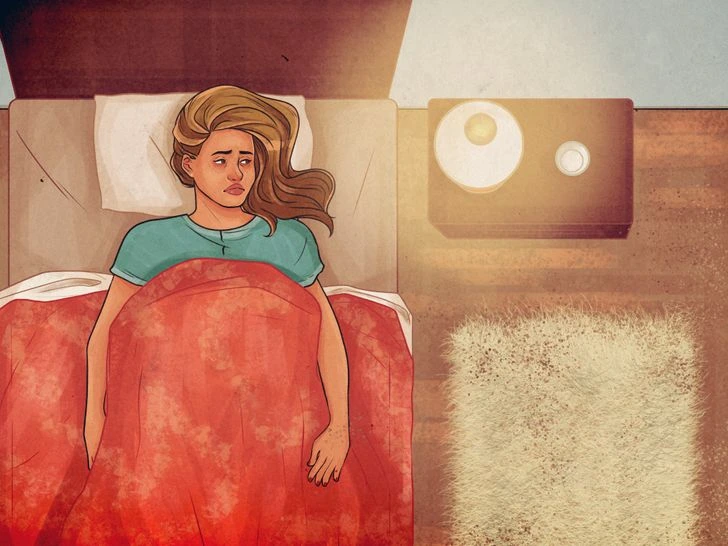
Carpets may look cozy, but they trap dust, pollen, and pet dander — all of which can lead to sneezing, coughing, and congestion during the night. These subtle irritants can break up your sleep without you even realizing it.
What to do: Choose hardwood floors or use washable rugs. Clean often and consider an air purifier for better air quality.
Video:
What causes insomnia?
2. No Bedtime Routine
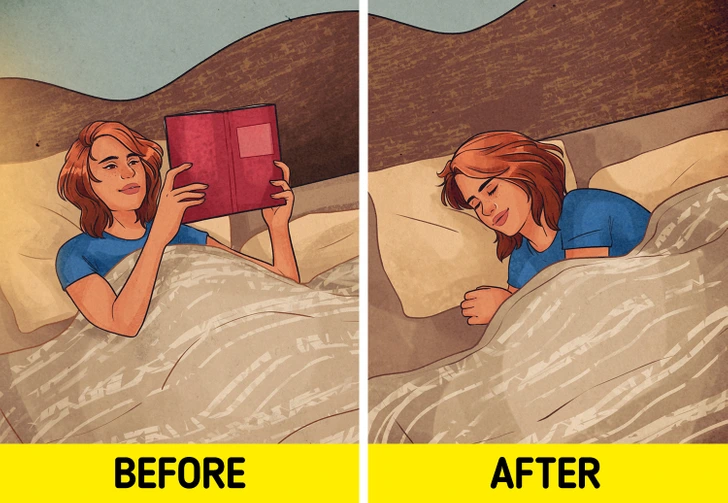
If you hop straight into bed without any kind of wind-down time, your brain may still be in “go” mode. That makes it hard to fall asleep and even harder to stay asleep.
What to do: Create a simple nightly ritual — like reading, journaling, stretching, or taking a warm shower — to let your body and mind know it’s time to rest.
3. Water Too Close to Bed
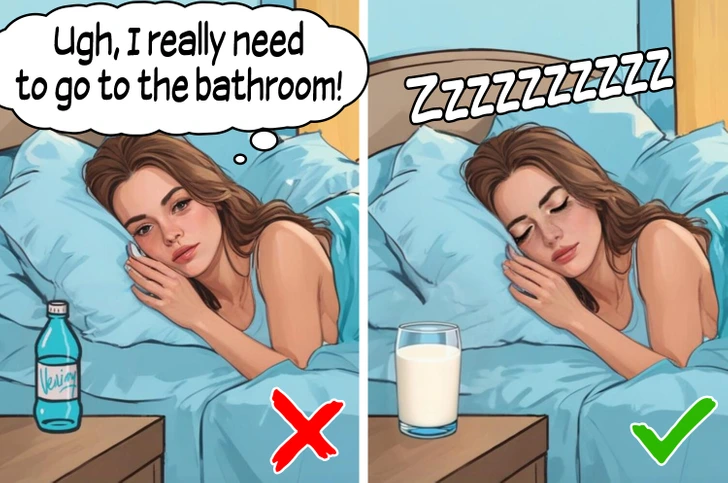
Keeping a glass of water by your nightstand seems harmless, but drinking right before bed may lead to middle-of-the-night bathroom runs that disrupt deep sleep.
What to do: Hydrate earlier in the evening and limit fluids one to two hours before bedtime. If you need something soothing, warm milk is a better option.
4. Spicy Dinners

Spicy meals can trigger heartburn and indigestion — especially when eaten late. Lying down after spicy food can make things worse and lead to poor-quality sleep.
What to do: Eat spicy dishes earlier in the day, or at least 2–3 hours before bedtime. Keep late-night meals light and easy to digest.
5. Drinking Black Tea at Night
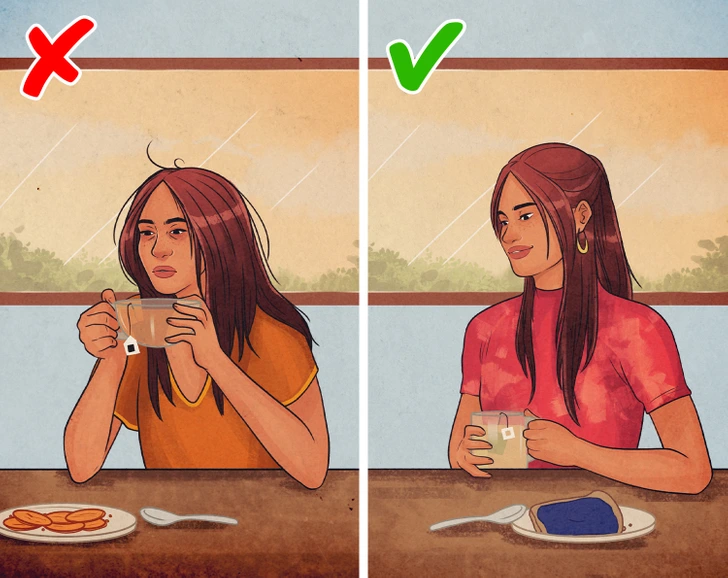
Black tea might seem like a healthy choice, but it contains caffeine — and that can stay in your system for hours. Even if you fall asleep, it can reduce your sleep quality.
What to do: Choose herbal teas like chamomile, peppermint, or lavender in the evening. They’re caffeine-free and promote relaxation.
Video:
Insomnia: why can’t I sleep?
6. Eating Cheese Before Bed
While the old myth about cheese causing nightmares isn’t backed by science, the truth is cheese is high in fat, which can slow digestion and lead to discomfort.
What to do: Enjoy your favorite cheeses earlier in the day. If you’re hungry before bed, opt for lighter snacks like bananas or almonds.
7. Sharing a Bed With Your Partner

As sweet as it sounds, sharing a bed isn’t always good for your sleep. Snoring, tossing and turning, or mismatched sleep schedules can lead to sleep interruptions and daytime fatigue.
What to do: Consider sleep independence. Separate beds or even separate rooms aren’t signs of relationship trouble — they can actually improve your connection by allowing both of you to get high-quality rest.
8. Late-Night Workouts
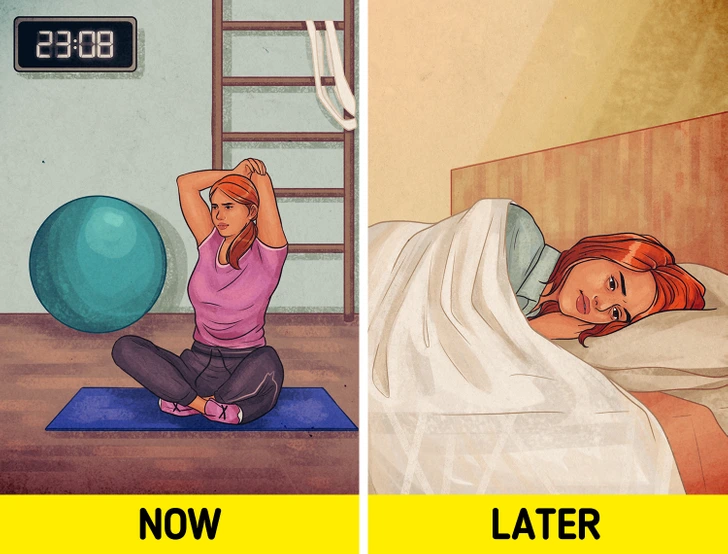
Exercise is great for your body and sleep overall — but not right before bed. High-intensity workouts raise your core temperature and adrenaline, making it harder to wind down.
What to do: Aim to finish workouts at least four hours before bedtime. Gentle yoga or stretching is fine in the evening and can even help you relax.
9. Using Your Bed as a Workspace

When you work in bed, your brain starts associating it with stress, productivity, and deadlines — not rest. That mental link can make falling asleep more difficult.
What to do: Keep work out of the bedroom. Make your bed a zone for sleep and intimacy only. This helps condition your brain to relax the moment you lie down.
10. Skipping Breakfast
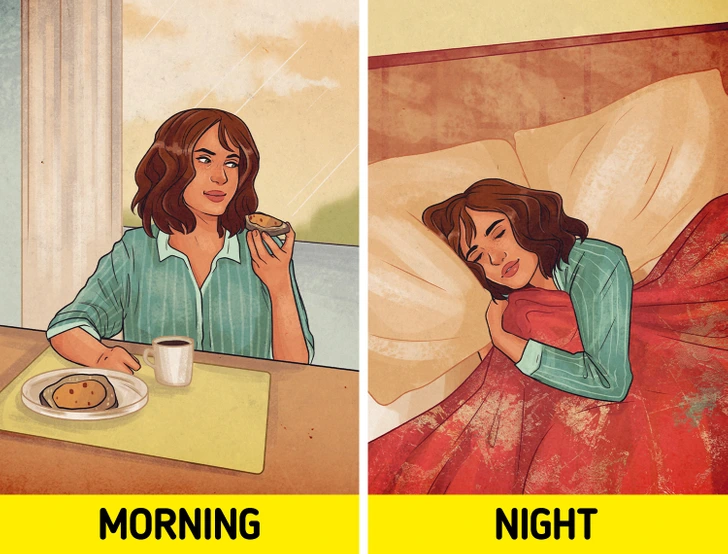
Skipping breakfast may seem unrelated to sleep, but it can disrupt your body’s internal clock — also known as your circadian rhythm. That throws off your entire day and night cycle.
What to do: Start your day with a balanced breakfast that includes protein, fiber, and healthy fats. It helps stabilize your hormones and supports better sleep at night.
11. Sleeping Without a Blanket
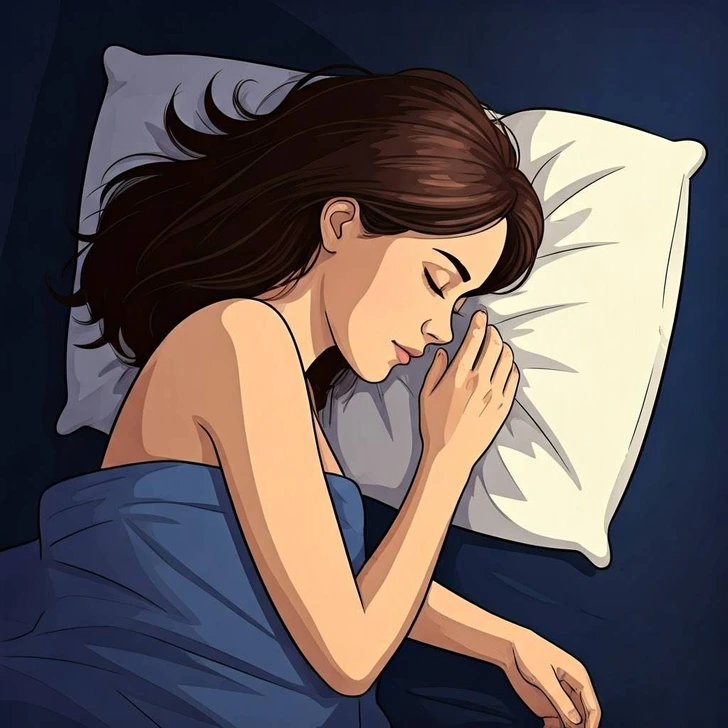
Even in warmer climates, blankets help regulate body temperature by creating a microclimate around you. Without one, your body can have trouble staying in the optimal sleep zone.
What to do: Use a light blanket, even in summer. In cooler months, layer up so your body feels stable and protected while sleeping.
12. Turning the Heater Too High
A super warm bedroom might feel comfy at first, but high temperatures can disrupt your body’s natural cooling process during sleep — making you toss and turn.
What to do: Set your bedroom temperature between 60–67°F (15–19°C). If you need extra warmth, use breathable bedding rather than cranking up the heat.
13. Wearing the Wrong Pajamas
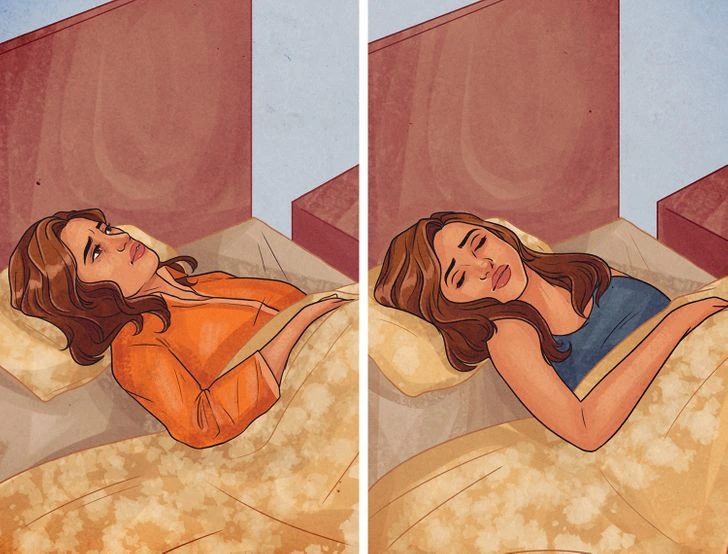
Synthetic fabrics can trap heat and moisture, leading to night sweats or overheating. Heavy pajamas can also make it hard for your body to maintain a sleep-friendly temperature.
What to do: Choose breathable, natural materials like cotton, bamboo, or linen. Keep your sleepwear light and loose for better airflow.
Rethinking How We Sleep: Is Sleep Independence the Secret?
If you’ve tried all the usual sleep tips and still wake up exhausted, maybe it’s time to rethink your approach. One growing trend is sleep independence — where couples choose to sleep in separate beds or rooms. Surprisingly, many couples report better sleep, less tension, and even stronger emotional intimacy after making the switch.
Sleep isn’t one-size-fits-all. What matters most is figuring out what works for you and honoring your body’s need for true rest.